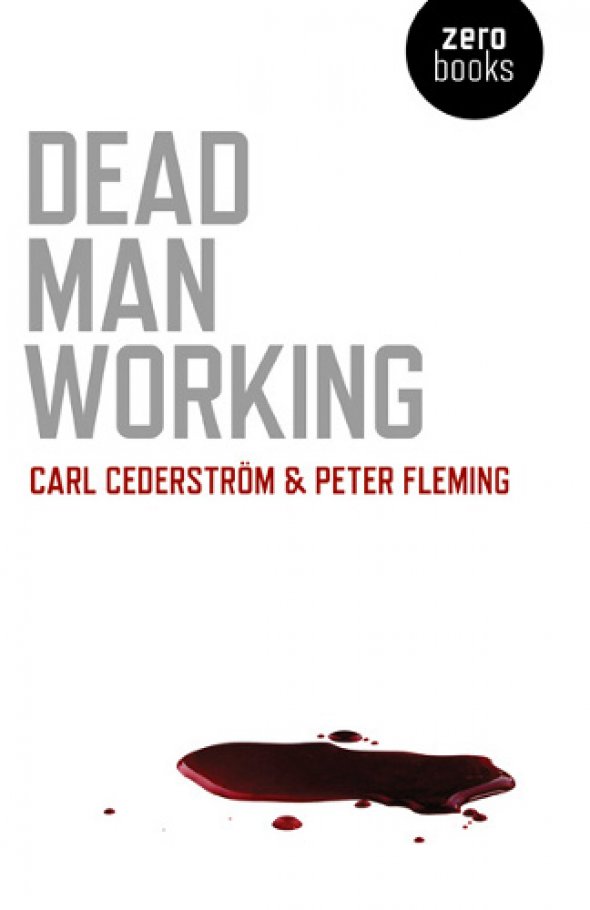Mordant Modernity
A review of Dead Man Working
‘This book,’ assert authors Carl Cederström and Peter Fleming, ‘is about what it means to live and work in a dead world.’ As such, Dead Man Working recalls the mythical trope known as katabasis: like Dante’s Inferno, the text suggests a journey into the underworld. Yet for Fleming and Cederström, hell is right here – in late capitalism, our everyday lives are already our afterlives.
Actually, Dead Man Working’s depiction of modern labour may lead somewhere much worse than hell, which always was a rather romantic notion. To borrow the terms of Greek mythology, the book takes us not to Tartarus or Elysium – hell or heaven – but to the place Homer called the ‘asphodel meadows,’ a whitewashed world of indifference and amnesia. Today’s workers aren’t tortured souls; we can no longer lay claim to that level of pathos. Now all we’re left with are tedious team-building exercises and insincere shows of ‘enthusiasm.’
So, Cederström and Fleming offer a mordant critique of modern office culture as limbo; a purgatory of flattened affect. But their analysis extends beyond the boundaries of the workplace, exploring a post-Fordist landscape in which the work / life balance is brutally blurred, and thus where ‘everyone is always working.’ This idea isn’t new – it’s been around at least since Adorno’s essay on unfree ‘free time’ – but Dead Man Working surpasses such abstract accounts by emphasising employees’ experiences. The book is filled with thick descriptions of damned souls just like us, checking work emails in the evening; dreaming about doing admin; succumbing to the stupidity of office recycling schemes. In all these cases, the authors uncover a compulsory falsification of experience, through which work colonises the lifeworld.
The study is further enriched by excursions into the bizarre realm of business ideology, where ‘pop-management pundits’ spew out poisonous paperbacks like Management by Fun – works which Fleming and Cederström have read deeply, so that we don’t have to. The picture their research paints is of a ‘major shift in the nature of power,’ an ‘ideological coup’ in which work co-opts all sources of opposition. To detourn Derrida, these days there’s nothing outside of the office. Whether we call it ‘corporate social responsibility,’ ‘liberation management’ or whatever, work has attached itself to our inmost sense of ‘authenticity,’ corrupting our capacity for self-fashioning. As the authors put it, ‘work is no longer something we only do, but is also something we are.’ In consequence, ‘from now on, there is no such thing as a bad world, only a bad you.’
The argument here is sophisticated, recalling Foucault’s approach to the introjection of power. But this comparison could be instructive for less appealing reasons: as with Foucault, there’s little scope for resistance in the foreclosed culture of Dead Man Working. Instead of examining insurrectionary tactics, Cederström and Fleming praise ‘symbolic’ acts of suicide, and, perhaps even more problematically, the ‘unfathomable’ aura of female children. In the book as a whole the word ‘strike’ is only cursorily mentioned; blink and you’ll miss it.
Thus, for all its bleak brilliance, Dead Man Working does run a risk. In myth, katabasis is followed by anabasis; redemptive ascent. Sure, Odysseus plumbs the depths, but he does so in order to inform his praxis. A one-way ticket to the land of the dead would simply be death. In this sense, what we must ask of Dead Man Working is whether it brings enough back from ‘the petrified world of dead work’ – or whether, like us, it might lose itself in that world.
Carl Cederström and Peter Fleming, Dead Man Working, Zero Books, 2012
Mute Books Orders
For Mute Books distribution contact Anagram Books
contact@anagrambooks.com
For online purchases visit anagrambooks.com







